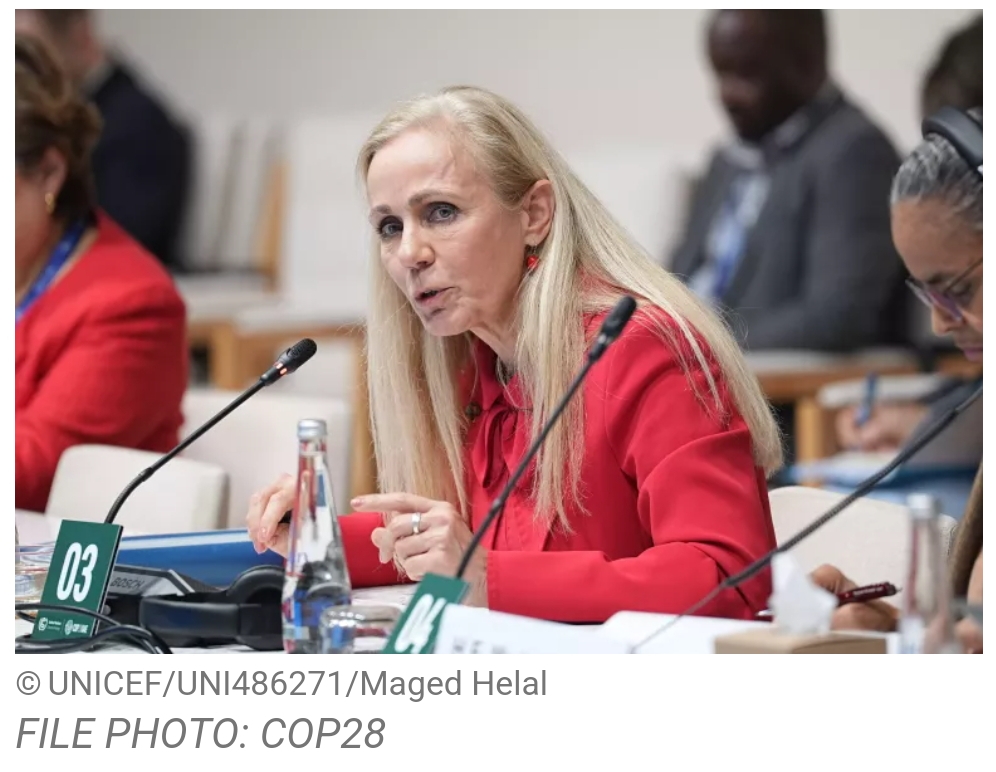UNICEF Warns of Global Funding Crisis Impacting Malnutrition Programs for Children in Ethiopia and Nigeria.
Geneva:
In a briefing held at the Palais des Nations in Geneva, UNICEF Deputy Executive Director Kitty van der Heijden highlighted the severe consequences of a global funding crisis on humanitarian efforts aimed at tackling child malnutrition, specifically in Ethiopia and Nigeria. The UNICEF official painted a dire picture of the challenges facing the organization’s operations, especially in countries already grappling with high levels of malnutrition and humanitarian crises.
Van der Heijden, who also addressed delegates at COP28 earlier this year, began her remarks by emphasizing the significant strides made over the past 25 years in addressing the global child malnutrition crisis. “Since the year 2000, the number of stunted children has decreased by 55 million, or one-third. In 2024, UNICEF and our partners reached 441 million children under five with services to prevent all forms of malnutrition,” she stated. However, she cautioned that these hard-won gains are now at risk due to a sharp decline in funding for lifesaving nutrition programs.
The Deputy Executive Director recounted her recent visits to Ethiopia’s Afar region and Nigeria’s Maiduguri, where the funding gaps were most evident. In these regions, nearly 1.3 million children under five, suffering from severe acute malnutrition, could lose access to treatment over the course of the year, putting them at heightened risk of death.
During her visit to Afar, van der Heijden observed the life-saving work of mobile health and nutrition teams providing critical services to remote pastoralist communities. These mobile units, vital for treating severe wasting and offering vaccinations and essential medicines, are severely limited due to the funding shortfall. “Currently, only 7 of the 30 mobile health and nutrition units that UNICEF supports in Afar are operational, a direct result of the global funding crisis,” she noted.
She also warned of the looming depletion of essential resources, such as Ready-to-Use-Therapeutic Food (RUTF), a key treatment for malnourished children. UNICEF estimates that without new funding, stocks of RUTF will run out in Ethiopia by May 2025, threatening the lives of 74,500 children in need of treatment each month. In Nigeria, the situation is equally dire, with supplies expected to run out between March and May, endangering the lives of around 80,000 children per month.
Van der Heijden stressed that the problem goes beyond the immediate crisis of RUTF shortages. “The focus cannot just be on RUTF or treating a child once they become severely malnourished. We must also work to prevent children from becoming malnourished in the first place,” she said. This includes supporting breastfeeding, providing micronutrient supplementation like Vitamin A, and ensuring access to necessary health services.
The UNICEF official also pointed to the broader global context, where the funding crisis is not limited to Ethiopia and Nigeria but is affecting vulnerable children across the world. With over 213 million children in 146 countries expected to need humanitarian assistance in 2025, van der Heijden warned that any delay in funding or cessation of critical services would have catastrophic consequences.
“Our biggest immediate concern is that even a brief halt in UNICEF’s critical life-saving activities risks the lives of millions of children at a time when needs are already acute,” she said.
Van der Heijden called on governments worldwide to prioritize investment in children’s health and well-being. She reminded global leaders that delaying action on foreign assistance not only harms children but also increases the costs for societies in the long run. “Investing in children’s survival and wellbeing is not only the right thing to do, it’s also the most economically sound choice any government can make,” she concluded.
The remarks come as UNICEF continues to urge international partners, both governmental and private, to address the growing funding gap and ensure that critical humanitarian services remain operational. Without sustained support, millions of children in need will be left without life-saving assistance at a time when it is most crucial.




